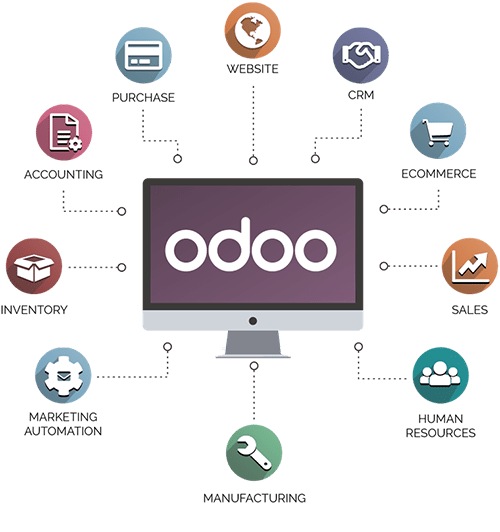How Odoo's Open-Source Model Benefits Businesses of All Sizes

Odoo, renowned for its comprehensive ERP capabilities, offers an open-source model that presents significant advantages for businesses of all sizes. This model allows organizations to leverage Odoo’s powerful features while enjoying the flexibility and cost benefits inherent in open-source software. Here’s how Odoo’s open-source approach can benefit businesses, whether they are small startups or large enterprises, and how specific Odoo modules enhance these benefits.
1. Cost Efficiency
One of the most immediate benefits of Odoo’s open-source model is cost efficiency. The open-source version of Odoo is free to use, which significantly reduces the initial investment compared to proprietary ERP systems. This cost-saving advantage is particularly beneficial for small and medium-sized businesses (SMBs) that may have limited budgets. Even larger organizations can find value in the open-source model, as it allows them to allocate resources to other strategic areas while still accessing a robust ERP solution.
Related Modules
-
Accounting Module: Streamlines financial management without requiring expensive third-party software.
-
Sales Module: Supports efficient sales processes at no additional licensing cost.
2. Customizability and Flexibility
Odoo’s open-source nature offers unparalleled customizability and flexibility. Businesses can modify the source code to tailor the ERP system to their specific needs and requirements. This adaptability means that companies can develop custom features, integrate with other systems, and adjust functionalities as their business evolves. The flexibility to customize Odoo ensures that organizations of all sizes can implement a solution that aligns perfectly with their operational processes and goals.
Related Modules
-
CRM Module: Enables customization of sales pipelines and customer interaction workflows.
-
Manufacturing Module: Allows businesses to create tailored production workflows and Bill of Materials (BOM).
3. Community Support and Innovation
The open-source community surrounding Odoo is a valuable resource for businesses. The active community contributes to continuous improvements, new features, and bug fixes. This collaborative environment fosters innovation and ensures that Odoo remains at the cutting edge of ERP technology. Businesses benefit from the collective expertise and shared knowledge of the community, which can enhance their implementation and use of the system.
Related Modules
-
E-commerce Module: Receives frequent updates and enhancements driven by community contributions.
-
HRIS Module: Benefits from community-shared tools for payroll and attendance management.
4. Scalability
Odoo’s open-source model supports scalability, making it suitable for businesses at various stages of growth. Companies can start with core functionalities and gradually expand their use of the ERP system as their needs grow. Odoo’s modular approach allows businesses to add new modules and features without overhauling the entire system. This scalability ensures that both small businesses and large enterprises can use Odoo to manage their operations efficiently as they scale.
Related Modules
-
Inventory Module: Scales with growing stock levels and complex warehouse operations.
-
WMS Module: Adapts to multi-warehouse environments as businesses expand.
5. Transparency and Control
Open-source software provides transparency and control over the system. With access to the source code, businesses can fully understand how the ERP system operates and make necessary adjustments. This transparency also enhances security, as organizations can review and address potential vulnerabilities. Additionally, having control over the system’s customization and integration processes enables businesses to align the ERP solution more closely with their strategic objectives.
Related Modules
-
Omnichannel Module: Offers full control over multi-channel sales integrations.
-
Invoice Module: Allows businesses to design and control invoice templates and processes.
Conclusion
Odoo ERP’s open-source model offers significant benefits for businesses of all sizes, from cost efficiency and customizability to community support and scalability. By leveraging the flexibility and transparency of open-source software, organizations can implement a tailored ERP solution that meets their unique needs and supports their growth. Whether you’re a small startup or a large enterprise, Odoo’s open-source approach provides a powerful and adaptable tool for managing your business operations effectively. The availability of specific modules like Accounting, CRM, Inventory, and E-commerce ensures that businesses can target their unique requirements while benefiting from a robust, open-source ecosystem.
Related links:
- Industry
- Art
- Causes
- Crafts
- Dance
- Drinks
- Film
- Fitness
- Food
- Games
- Gardening
- Health
- Home
- Literature
- Music
- Networking
- Other
- Party
- Religion
- Shopping
- Sports
- Theater
- Wellness
- News


